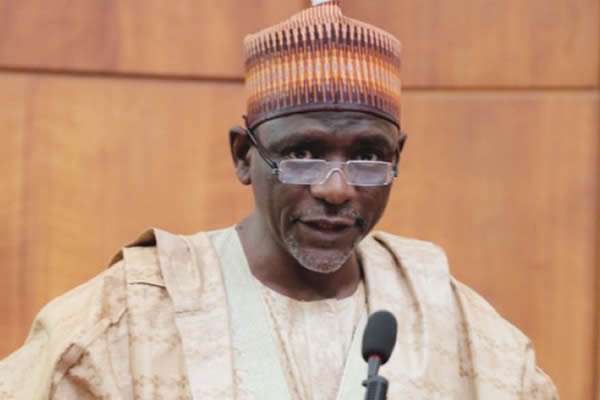The Federal Government through the minister of education, Adamu Adamu on Wednesday hailed teachers’ commitment, selflessness for not embarking on strike despite what it tagged as “unfavorable and intolerable policies”.
Adamu made this known during the 2022 World Teachers Day celebration in Abuja.
Speaking during the ceremony, Adamu noted that teachers embraced the principle of constructive engagement which has helped to keep students in schools amidst relegation of welfare.
“It is universally accepted that the teaching profession is a noble one. Regrettably, overtime, the place of teachers in our society has come to be less appreciated, their roles relegated and their welfare ignored. Our teachers, especially at the basic and secondary levels have been at the receiving end of some of the most unfavourable and sometimes intolerable policies, practices and experiences.
“Despite this paradox, I note with an enormous debt of gratitude that the Nigerian Union of Teachers, the umbrella association of all teachers, never called out their members on strike or stopped catering to the educational needs of our children throughout my tenure as Minister of Education. Rather, they chose a policy of constructive engagement with all levels of governments and the larger society to proffer solutions. They even instituted awards for state and non-state actors who demonstrate commitment to the welfare of teachers and the promotion of educational development generally.
“It is therefore not surprising that this strategy has proved more productive as we have witnessed a gradual improvement in the last few years. I recall with deep satisfaction the progress that has been recorded since President Muhammadu Buhari unveiled a comprehensive policy to redress, reposition and refocus the teaching profession in Nigeria exactly two years ago at this same venue. The scorecard is heart-warming but I am the first to acknowledge that there is still a long road to travel before we reach our desired destination.
Speaking further, Adamu highlighted some of the successes the regime of the President Muhammadu Buhari, has recorded.
“Some of the successes recorded so far include: The retirement age of Teachers has been increased to 65 years with a corresponding increase in service years to 40 years to retain experienced hands and institutionalize mentoring in the profession.
“Following the concurrence of the National Council on Establishments, we have adopted a career path policy that will see our teachers specialize and practice their profession on the basis of skills sets, aptitude and proficiency, and continuing professional development.
“We have restored the practice of attracting and retaining the best brains in the teaching profession to reduce current shortfalls in staff-students ratios in our universities through reintroduction of graduate assistantship with enhanced incentives.
“We have significantly improved teacher quality through steadfast implementation of certification and removal of quacks from our classrooms, through the untiring efforts by the Teachers Registration Council of Nigeria and the National Teachers Institute.
“Arrangements have been concluded to commence the payment of stipends and scholarships to education students of our universities and colleges of education to boost enrolment and with the assurance of automatic employment upon graduation.
“The National Salaries, Incomes and Wages Commission has completed work on the reviewed remuneration package for teachers in basic and secondary schools including provisions for rural posting allowance, science teachers’ allowance and peculiar allowance. Implementation is awaiting conclusion of consultations with state governments and the National Assembly”.
Speaking further, Adamu noted that the “biological children of teachers can now attend their respective schools at no cost as an additional incentive for committed service and in appreciation of the sacrificial spirit that propels it.
“We have revamped the curriculum and introduced history and religious knowledge as stand-alone subjects. We are also working with professional associations and religious bodies including the Nigerian Historical Society to address the shortage of teachers in specialized subjects.
“We have repositioned our intervention agencies and established the National Senior Secondary Education Commission to fill the gap in that segment of our education tree. The amendment of the enabling law is at final stages in the National Assembly.
“After several failed attempts in the past, we have formulated a National Language Policy that will ensure the progressive and consistent development of Nigerian languages and prevent their extinction. A national launch is planned before the end of the Administration”


